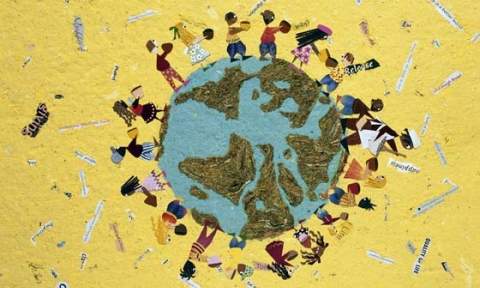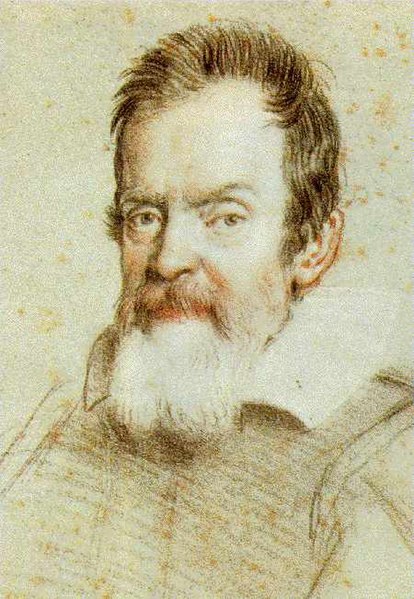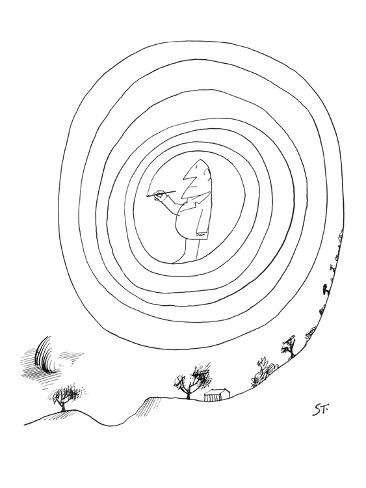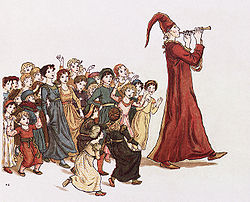

|
A personal view and a public view A writer – and, I
believe, generally all persons – must think that whatever happens to
him or her is a resource. All things have been given to us for a
purpose, and an artist must feel this more intensely. All that happens
to us, including our humiliations, our misfortunes, our embarrassments,
all is given to us as raw material, as clay, so that we may shape our
art. A poet’s work. To name the unnameable, to point at frauds, to take
sides, start arguments, shape the world and stop it from going to sleep. It’s ironic but true that those who aim at the former do a better job
at the latter. |
1 February 2012
|
||
|
How I consulted the oracle of the fishes
|
2 February 2012
|
||
|
When you have chosen your part, abide by it and do not weakly try to reconcile yourself to the world. The heroic cannot be the common, nor the common heroic. Congratulate yourself if you have done something strange and extravagant, and broken the monotony of a decorous age. — Ralph Waldo Emerson |
3 February 2012
|
||
|
Magicians without Borders
...began when Tom Verner, a professor of Psychology in Burlington,
VT, was traveling through Eastern Europe in 2001 and did some magic
shows in the refugee camps of Kosovo and Macedonia. The shows were so
well received, that Tom decided to take a leave from his teaching and
perform full time. click for web page and video |
4 February 2012
|
||
|
Don’t ever tell other people what to do. - JJM |
5 February 2012
|
||
|
Harriet Tubman ...is perhaps the most well-known of all the Underground Railroad’s conductors. During a ten-year span she made 19 trips into the South and escorted over 300 slaves to freedom. And, as she once proudly pointed out to Frederick Douglass, in all of her journeys she ‘never lost a single passenger.’ Tubman was born a slave in Maryland’s Dorchester County around 1820. At age five or six, she began to work as a house servant. Seven years later she was sent to work in the fields. While she was still in her early teens, she suffered an injury that would follow her for the rest of her life. Always ready to stand up for someone else, Tubman blocked a doorway to protect another field hand from an angry overseer. The overseer picked up and threw a two-pound weight at the field hand. It fell short, striking Tubman on the head. She never fully recovered from the blow, which subjected her to spells in which she would fall into a deep sleep. AAround 1844 she married a free black named John Tubman and took his last name. (She was born Araminta Ross; she later changed her first name to Harriet, after her mother.) In 1849, in fear that she, along with the other slaves on the plantation, was to be sold, Tubman resolved to run away. She set out one night on foot. With some assistance from a friendly white woman, Tubman was on her way. She followed the North Star by night, making her way to Pennsylvania and soon after to Philadelphia, where she found work and saved her money. The following year she returned to Maryland and escorted her sister and her sister’s two children to freedom. She made the dangerous trip back to the South soon after to rescue her brother and two other men. On her third return, she went after her husband, only to find he had taken another wife. Undeterred, she found other slaves seeking freedom and escorted them to the North. Tubman returned to the South again and again. She devised clever techniques that helped make her ‘forays’ successful, including using the master’s horse and buggy for the first leg of the journey; leaving on a Saturday night, since runaway notices couldn’t be placed in newspapers until Monday morning; turning about and heading south if she encountered possible slave hunters; and carrying a drug to use on a baby if its crying might put the fugitives in danger. Tubman even carried a gun which she used to threaten the fugitives if they became too tired or decided to turn back, telling them, ‘You’ll be free or die.’ |
6 February 2012
|
||
|
Bonfire of the Vanities On this day in 1497, supporters of the Dominican priest Girolamo Savonarola collected and publicly burned thousands of objects like cosmetics, art, playing cards, books and musical instruments in Florence, Italy, on the Mardi Gras festival. Such bonfires were not invented by Savonarola, however. They were a common accompaniment to the outdoor sermons of San Bernardino di Siena in the first half of the fifteenth century. Although it is widely reported that the Florentine artist Sandro Botticelli burned several of his paintings based on classical mythology in the great Florentine bonfire of 1497, the historical record on this is not clear. The art historian Giorgio Vasari said that Botticelli was a partisan of Savonarola: ‘he was so ardent a partisan that he was thereby induced to desert his painting, and, having no income to live on, fell into very great distress.’ — (from a Wikipedia article) Waves of the sea grow hoarse with repetition of their mystery. |
7 February 2012
|
||
|
Public Education: a radical critique Socrates foresaw if teaching became a formal profession, something like this would happen. Professional interest is served by making what is easy to do seem hard; by subordinating the laity to the priesthood. School is too vital a jobs-project, contract giver and protector of the social order to allow itself to be “re-formed.” It has political allies to guard its marches, that’s why reforms come and go without changing much. Even reformers can’t imagine school much different. David learns to read at age four; Rachel, at age nine: In normal development, when both are 13, you can’t tell which one learned first — the five-year spread means nothing at all. But in school I label Rachel “learning disabled” and slow David down a bit, too. For a paycheck, I adjust David to depend on me to tell him when to go and stop. He won’t outgrow that dependency. I identify Rachel as discount merchandise, “special education” fodder. She’ll be locked in her place forever. In 30 years of teaching kids rich and poor I almost never met a learning disabled child; hardly ever met a gifted and talented one either. Like all school categories, these are sacred myths, created by human imagination. — John Taylor Gatto |
8 February 2012
|
||
|
It is as if ancient graves, hidden deep in the shadows of the psyche and the earth, are breaking open of their own accord, unwilling to be silent any longer...No leader or people of any country will be safe from these upheavals that lead to exposure, no matter how much the news is managed or how long people’s grievances have been kept quiet. Human beings may well be unable to break free of the dictatorship of greed that spreads like a miasma over the world, but no longer will we be an inarticulate and ignorant humanity, confused by our enslavement to superior cruelty and weaponry. We will know at least a bit of the truth about what is going on, and that will set us free. — Alice Walker, born this day in 1944 |
9 February 2012
|
||
|
Possibilities The things that most inspire me today I would have dismissed as wildly visionary just 20 or 30 years ago. So humility counsels we simply recognize that it is not possible to know what is possible. And if we really accept that then we are absolutely free to follow our curiosity, follow our hearts, follow our energies and those who we most admire. Find the people who are just a little bit bolder than we are and associate with them, because we know that we want to become bolder ourselves...Give the mirror neurons in our brains a chance to empathize with someone toward whom we might grow. — Frances Moore Lappe, born this day in 1944, started her career helping us think about how to eat in a healthy and sustainable way, and grew to see the solution to the world’s problems of hunger and environmental devastation in a return to the principles of democracy. What Lappe has accomplished is the more impressive because she is not a natural public leader. Each time she opposes the status quo—every speaking engagement (you’ll see lots of them on Youtube), represents a struggle with a shy nature and a pounding heart, which she fondly calls her ‘inner applause.’ Hope is not what we find in evidence; it’s what we become in action. |
10 February 2012
|
||
|
Promising drug for Alzheimer’s Disease A team of scientists led by Gary Landreth of University of Pennsylvania Medical School yesterday published a report of promising test results, using a relatively new anti-cancer drug to treat Alzheimer’s Disease. The drug’s effect was discovered serendipitously by graduate student Paige Cramer of Case Western Medical School. Tests were done on mice that had been genetically engineered to be prone to AD. The best-accepted theory for the cause of AD involves accumulations in the brain of amyloid plaques. Treatment with Bexarotene induced the mouse immune system to attack the plaques, and their prevalence dropped dramatically within hours. The cognitive and social impairments of the mice were also relieved, and the mice became more active.
Science Daily article |
11 February 2012
|
||
|
Science and art Every culture has its taboos: topics that cannot be discussed in public, and for which a person risks ostracism if he persists in seeking to raise a discussion. Inevitably, the unspeakable comes to mask unspeakable atrocities, if only because of the opportunism of that tiny subpopulation of sociopaths who discover that their victims will not or cannot report the abuses they have suffered. The task devolves upon the artists—sensitive, creative and perhaps lonely souls—to find ways to disarm us, and help us begin to confront ideas or realities that we have found too uncomfortable to consider. — Josh Mitteldorf Today’s scientists like to think that logic and objectivity make them immune to such taboos, but this is a conceit, and the dangers of avoidance are magnified when they acquire the imprimatur of ‘science.’ |
12 February 2012
|
||
|
from Three Books of the Absolute For the keeper of the House is gone, and all
that remains testifies that he — Richard Rose, evoking his experience of Sahaja Nirvikalpa Samadhi. In this video, Rose tells us we shall not find knowledge until we want it more than anything—more than comfort or pleasure, more than our lives, more than our children’s lives. |
13 February 2012
|
||
|
Le vin des amants / The wine of lovers
|
14 February 2012 |
||
|
Galileo It is not easy to rely on one’s own logic and perceptions when they are in conflict with the consistent beliefs of the community in which one is immersed. How much more so was this true in the 16th century! Galileo had not only to figure out how the world works, but also had to figure out what were the appropriate criteria for truth. Of all the discoveries he left us, perhaps the most lastingly transformative was his contribution to creating the modern scientific method. It was Galileo who first combined observation, mathematics, logic and experiment to create and evaluate scientific theories. Today, those of us who hold beliefs that contradict the facts about which all around us agree nevertheless can find support for our reality in contacts with far-flung internet communities. In the 16th century, there were only books to link like minds over large distances. Today, those of us with unpopular beliefs face ostracism. In Galileo’s day, he faced a death sentence for heresy — a sentence which he escaped by recanting the truth, and even so was held under house arrest the remainder of his life. When Galileo was a young man, he wanted to study to enter the priesthood. It was his father who prevailed upon him to get a medical degree instead. It was his work as a doctor that supported him all the while he was making discoveries in physics and astronomy. Galileo is 548 years old today. ‘I have never met a man so ignorant that I could not learn something from him.’ |
15 February 2012
|
||
|
Silam inua As she listened, she came to hear the breath of each place —
how the snow falls here, how the ice melts — how, when everything
is still -- the air breathes. The drums of her ears throbbed with the
heartbeat of this place, a particular rhythm that can be heard in no
other place. |
16 February 2012
|
||
|
Rhyme #75
|
17 February 2012
|
||
|
A modern boy genius whose life was as short as Mendelssohn or Mozart, André Mathieu wrote passionate, post-romantic pieces, mostly for the piano. — Listen to Mathieu play his own Scherzando Mathieu would have been 82 years old today. |
18 February 2012
|
||
|
Inviting challenge We are blessed with an enormous freedom to choose what we will read and what we will watch. Most of us use that freedom most of the time to bathe ourselves in facts we already know and ideas that are familiar and comfortable. It’s called confirmation bias. Once we know this about ourselves, we are free to try to oppose it. Subscribe to list serves from the opposite end of the political spectrum. Read news that is prepared and packaged far from the USA. Watch foreign films from India and China as well as Europe. Listen to music that other people enjoy but is difficult for you to understand and appreciate. To whose ideas are you utterly opposed? What would you say if you were invited to address an audience of such people, to open a dialog and explain why your thinking is different from theirs? What cultures seem alien or mystifying to you? Is there someone from a different background with whom you can invite a friendship? There is much more that we don’t know about than we know about, and most of what we ‘know’ is wrong. It may be easy to acknowledge this in the abstract, but actually prying ourselves open and inviting change is the most challenging project we can undertake. — JJM Link Link Link Link Link Link Link Link Link Link Link Link Link Link Link Note to fellow liberal intellectuals: A lot of what we avoid reading is for good reason: it is paid political propaganda or religious dogma or disinformation disseminated by business interests. Perhaps this is not new or surprising. What I have been discovering the last 7 years, and what continues to surprise me, is the extent to which sources that I have trusted (like established scientific journals and the liberal news outlets) have been tainted by a combination of censorship, self-censorship, herd thinking and the conservatism of funding sources for research and journalism. What I’ve learned is that I can’t trust any organization to separate the fascinating, new discoveries from the crackpots and kooks—it’s a job I have to do for myself, painstakingly, topic by topic and source by source. |
19 February 2012 |
||
|
The 8th Precept Do not utter words that can create discord and cause the community to break. Make every effort to reconcile and resolve all conflicts, however small. — Thich Nhat Hahn, Fourteen Precepts of Engaged Buddhism |
20 February 2012
|
||
|
“It’s a great party, and anyone who doesn’t enjoy Mardi Gras is not of this world.”
During the 12-day period leading up to Mardi Gras, nearly 70 parades
are held |
21 February 2012
|
||
|
Afternoon on a hill I will be the gladdest thing — Edna St.Vincent Millay, born this day in 1892 |
22 February 2012
|
||
|
Hitting her stride as a woman Hedda felt as she felt walking in the countryside when the weather turned wild. First, you put your head down and try to protect the dry places inside your damp garments. Then, as damp becomes drenched, and fingers and toes cool and numb, you put your head up, open your mouth, and eat the weather, tasting the sting of the air and the water. — A. S. Byatt, from The Children’s Book |
23 February 2012
|
||
|
Challenge Day Challenge Day is a one-day program offered in hundreds of high
schools every year which opens students to seeing their common humanity
by creating a safe place for individuals to reveal their common
vulnerabilities. It is not uncommon by the end of the day to find rival
gang members hugging each other and saying I’m sorry, even with tears in
their eyes. Watch the powerful clip of this profound video at the link
below and see if you aren't moved and inspired by this life-changing
program. |
24 February 2012
|
||
|
No closer to the secret of life One of the great scientific ironies of the last century is the fact that molecular biology, which its pioneers expected to provide a firm chemical and physical basis for understanding life, instead uncovered powerful sensory and communication networks essential to all vital processes, such as metabolism, growth, the cell cycle, cellular differentiation, and multicellular morphogenesis. Whenever these processes have been subjected to the most advanced
types of biological analysis, the number of regulatory interactions and
control molecules inevitably has grown to rival (and frequently
outnumber) the molecules dedicated to executing the basic biochemical
and biomechanical events. — Jim Shapiro, from Evolution: A view from the 21st Century In this book, Shapiro takes a speculative step beyond the scientific consensus and makes a pretty good case that ‘self-modification’ abilities extend right up to the cell’s ability to modify its own DNA. If he is correct, then we will need to replace the ‘Central Dogma’ that has framed our understanding of biochemistry since Francis Crick in the 1960s. According to the Central Dogma, DNA is the seat of control of the cell, and all information flows out from DNA, in signals that can take the form of RNA or proteins or sugars. According to Shapiro, all of these signaling modalities form a complex web, each capable of influencing and modifying the others. Shapiro calls it natural genetic engineering. In Shapiro’s scheme, the nervous system is another, connected web, which exchanges information with all the others. The claim is that nervous signals, too, can modify DNA. You are what you think. Shapiro wrote a blog for Huffington Post last week that may be a little dense for the uninitiated, but which has the virtue of being brief. The more we know, the more we know we don’t know. |
25 February 2012
|
||
|
Questions Is it possible to separate feelings of pain and pleasure from judgments of good and bad? What would it be like to experience without evaluating? Does dream life continue all the waking day when, because my attention is elsewhere, I am even less conscious of it than during the night? How does my running commentary, packaging my experience for communication to others, affect the quality of the experience? What would be my memory store of experience if it were not organized and storified with verbal labels? — Josh Mitteldorf |
26 February 2012
|
||
|
You callin’ me crazy? Definitions of psychopathologies and the diagnostic criteria thereof are formulated primarily by the use of ‘consensus reality’ as a baseline and universal reference point. Consensus reality is dangerously unreliable and unsuited for inclusion in the formulation of any scientific model; in fact, massive collective delusions have been common throughout recorded human history. Furthermore, consensus reality can be manipulated into illusory or delusional configurations in the collective consciousness of large groups, to the benefit of the manipulator(s). As consensus reality becomes part of the large-group behavioral field, large-group behavioral manipulation and control is facilitated in this manner. — Dan Mage |
27 February 2012
|
||
|
Linus Pauling More than any man of his era, it was Linus Pauling who took the quantum mechanics from physicists and turned it into a prescription for thinking about chemical structure. He created the modern science of chemistry. Science cannot be stopped. Man will gather knowledge no matter what
the consequences – and we cannot predict what they will be. Science will
go on — whether we are pessimistic, or are optimistic, as I am. I know
that great, interesting, and valuable discoveries can be made and will
be made… But I know also that still more interesting discoveries will be
made that I have not the imagination to describe — and I am awaiting
them, full of curiosity and enthusiasm. Paulling thought creatively and brilliantly about many fields on the periphery of his primary expertise in quantum chemistry. He was active and productive, studying the physiology and therapeutic benefits of vitamin C right up to his death at 93. He won a second Nobel Prize for Peace. Today is Pauling’s eleventy-first birthday. The only sane policy for the world is that of abolishing war. |
28 February 2012
|
||
|
Peace = Truth? “Contemplative and bookish men must of necessity be
more quarrelsome than others, because they contend not about matter of
fact, nor can determine their controversies by any certain witnesses,
nor judges. But as long as they go towards peace, that is Truth, it is
no matter which way.” |
29 February 2012
|












%20-%20Lovers%20On%20Horseback,%20c.1480.jpg)














